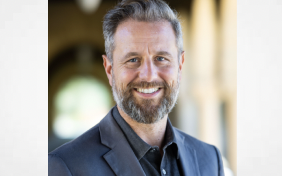Posted by
John Tredennick CEO and Founder at Merlin Search Technologies
Minnesota Court Schools Counsel on using GenAI for pleadings and declarations.
A recent federal court decision (Kohls v. Ellison, Jan 2025) provides critical guidance on integrating AI into litigation practice. The case, challenging Minnesota’s deepfake law, showcases both the potential and pitfalls of AI use in legal proceedings through the court’s careful analysis of two expert declarations.
Minnesota decisionQuick Takeaways:
* AI use in legal work is acceptable and potentially transformative – but attorneys and experts must maintain rigorous verification protocols.
* Under Rule 11, lawyers should now ask experts and witnesses whether they used AI in preparing declarations and what steps they took to verify AI-generated content.
* Even AI experts can fall victim to AI hallucinations – as demonstrated when an expert’s declaration was excluded because it contained fake, AI-generated citations.
———-
The first declaration, from Professor West of the University of Washington’s Center for an Informed Public, demonstrates effective AI integration. Though AI-assisted, his analysis of deepfake technology and its societal impacts was admitted because he maintained rigorous verification standards. The court specifically noted how this exemplified AI’s capacity to enhance legal practice while preserving professional integrity.
The contrasting treatment of Professor Hancock‘s declaration offers crucial lessons. Despite his expertise in AI and misinformation at Stanford, his declaration was excluded because it contained unverified, AI-hallucinated citations generated by GPT-4o. The court found this particularly concerning in a document submitted under penalty of perjury, highlighting how even experts must maintain verification protocols.
This decision articulates a clear framework for AI adoption in legal practice. While affirming that AI can “revolutionize legal practice for the better,” the court emphasizes that verification remains paramount. Rule 11’s “reasonable inquiry” standard may now require attorneys to specifically verify AI-generated content and document its use. Most significantly, the ruling reinforces that while AI can enhance our capabilities, it cannot substitute for professional judgment and diligent verification.
For those advancing legal practice through technology, this decision marks a significant milestone. It charts a path forward that embraces AI’s transformative potential while establishing clear guidelines for responsible implementation. The future of legal practice lies in this balanced approach: leveraging technological innovation while upholding the highest standards of professional responsibility.
You can read the opinion here: https://lnkd.in/guMf7jYc
Thanks and a hat tip to Judge Allison Goddard for sharing this decision.




